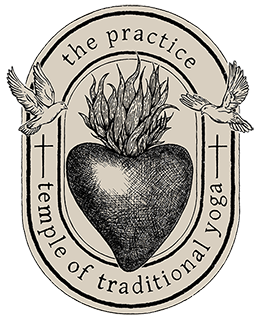By Amy Effendy.
“I now choose to rise above my personality problems to recognize the magnificence of my being. I am totally willing to learn to love myself.” – Louise L. Ha
For many of us, the concept of self-love might conjure images of self-obsession, perfection, or even with the label of narcissism. According to study, self-love and compassion are key for mental health and well-being, keeping depression and anxiety out of the windows.
There are huge different between self -love and self-obsessions. It is important to understand the difference between these two. Self-love means acceptance, kindness, encouragement, and care.
When you love yourself, you show kind behaviour to your soul and encourage it. Self-obsession, on the other hand, compels you to compare yourself to other people.
We lived in an incredibly fast-paced world, that is constantly on the move – between jobs, relationship, family, friends and everything in between to be who we are, to accept who we are seems required a big amount of work. With high level stress on demands and expectations, looks, appearances, professional achievements, social elevations that constantly urge you to compete to the need of perfection on everything you do.
Most of the time, when we’re being too hard on ourselves, we do it because we’re driven by a desire to excel and do everything right, all the time. This entails a lot of self-criticism, and that persecutory inner voice that constantly tells us how we could’ve done things better is a hallmark of perfectionism.

“Why is self-love important?” you may ask…
For many of us, self-love might sound like a luxury rather than a necessity, too much investment on your time, money and energy — or a new-age fad for those with too much time on their hands.
Ironically, however, self-care and -compassion might actually be needed most by those of us who work too hard and who are constantly striving to surpass ourselves and grasp the shape-shifting phantasm of perfection.
Studies have shown that perfectionists are at a higher risk of several illnesses, both physical and mental, and that self-compassion might free us from its grip. Therefore, perfectionism and self-compassion are inextricably linked.
We think that by giving our absolute ALL to others was the right thing to do – and in believing this we miss a vital piece of the puzzle. The truth I’ve learned is “in order to be able to serve others we first need to serve ourselves and to look inward and practice loving our own unique spirit”. Going through this stages help me got the conviction that doing so will help me to lead a happier, more fulfilled life.
Self-compassion and self-love are largely used interchangeably in specialized literature. Research shows that having more self-compassion builds resilience in the face of adversity, helping people to recover more quickly from trauma or romantic separation. It also helps us to better cope with failure or embarrassment.
According to the researchers, “Self-kindness entails being warm and understanding toward ourselves when we suffer, fail, or feel inadequate, rather than flagellating ourselves with self-criticism”. Mindfully trained self-compassion
‘Be kind to yourself in the midst of suffering and it will change.’ Mindfulness says, ‘Open to suffering with spacious awareness and it will change.’”
NOW the question is how to start….
Invest yourself to SELF STUDY, the yogis called this as Swadhyaya….it can be spending time with your holy beings, reading spiritual text, practicing mantra japa, mindful yoga, affectionate breathing, and meditation practice that will cast a light on the mind and reveal its shadows.
Mindfulness exercises that one can do to develop self-compassion are various.
For me studying and practicing Tantra Hatha Yoga have change my life immensely. Moving from Corporate World to being a wife and mother of three beautiful princess, and a Yoga Teacher….
Yoga with no doubt strengthen my personality, to know myself in a deeper and intimate levels, radiate my luminous capacity to love, to heal myself so that I can love and heal others.
Yoga is about cultivating self-knowledge. “It’s a system and methodology to awaken clear perception and the light of both self-knowledge and knowledge about the world we live in”. Yoga allow us conjure an image of a mirror with which we can look inside ourselves.
And in fact all the great texts introduce us to ways of seeing that create opportunities for us to recognize ourselves better, allow us to remember who we are, figuring out (and owning) who we are not. It evolves self-inquiry and inner contemplation. When you do your yoga practice mindfully (this include meditation, because yoga is meditation) you are able to listening to yourself.
It can mean two things :
Firstly, paying attention to how you internally talk to yourself is crucial for learning to cultivate an intimate feeling of self-love.
“What type of language do you use with yourself when you notice a flaw or make a mistake? Do you insult yourself or do you take a more kind and understanding tone? If you are highly self-critical, how does that make you feel inside?”
We are much harsher to ourselves than we would be to others, or than how we would expect others to treat us. So, to replace this harsh inner voice with a kinder one, you can simply notice it — which is already a step toward quietly subduing it — and actively try to soften it.
Finally, you can try to rephrase the observations that you may have initially formulated quite harshly in the words of a kinder, more forgiving person.
With love always,
Ami Effendy
